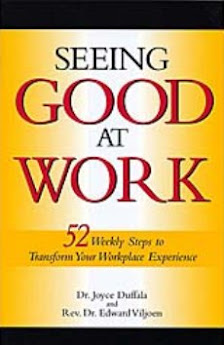Dear Anonymous,
Thank you for your questions on the post of Rev. Richard's words. Your first question is:
"So this means that when you say "change your thinking, change your life." it is not misleading when changing conditions is not the goal of Science of Mind. You are not going to get more money or cure cancer, you are simply going to know peace and acceptance with whatever conditions exist and surrender all of it into the divine mind so that any changes in conditions comes from a higher power and not from the little ego self, yes? "
I was watching Forrest Gump in Southern California while resting between sessions of the conference and remembering how much I enjoyed it. While Gump is on his long run, many folk have epiphanies such as the man with the bumper sticker business who gets the inspiration for "Sh** Happens". I see that both teachers acknowledge that suffering exists and that stuff happens all the time. I think Rev. Richard is saying that living in the idea that one day stuff will not happen is not a good plan for life. I don't think he is suggesting that things cannot improve or change. Ernest Holmes on the other hand had a personal philosophy saying that we can use our spiritual practices to address "discord of every nature" and taught his students to expect to be emancipated from the troubles that beset humankind. On the most basic level, yes you can expect to get better, you can expect to have a better job, yes you can expect to rearrange the structures of life by applying yourself through spiritual practices. On a deeper level, if your inner life and hidden beliefs remain unexamined, you may discover things don't change that easily. On a deeper level still, you may discover there are something that are not yours to change.
The serenity prayer is helpful to me in this: "God grant me the serenity to except the things I cannot change courage to change the things I can and wisdom to know the differnece..."
Your second questions is:
When Ernest Holmes says, "There is a power in the universe and you can use it." his words are not misleading you into thinking that you can change or create anything?" To say we are co- creators is to say that there are two of us when I understand there is only One. How do you teach the youth in this movement this concept when their entire developmental process is to create an ego identity, and empowered sense of little self?
I think that Ernest Holmes taught that we can use the spiritual power within us to change and to create. Not everything can be changed or created (I cannot currently change the rotation of the earth, but i can change the degree of order in my household, I cannot create life but I can create a resume or the willingness to work out in a gym -- the limitations I mentioned may be a function of my level of consciousness - grin ).
The paradox of being many in the one is one of the key concepts of Ernest Holmes teachings. He teaches that we are individual points of activity within the One - in that way the term co-creator is not intended to refer to separateness but to individuality. When talking to the youth I use the example of the endless variety of human individuals, probably never ever duplicated exactly as an example of how creation is not exhausted in this regard, and continues to produce endless variety, and yet all this diversity of individuality remains part of the one. The question the youth respond to most well is "Although we are all different, what makes us the same?"
Your last statement is:
I have met a woman who was raised in Science of Mind and she was the scariest person I have ever met. She was programmed to believe she could have anything she wanted and she had no regard for the consequences that affected the people around her. A total and complete immersion in a power trip that freaked me out! Food for thought...
Dear Anonymous, I don't know exactly how to address this last statement other than to say Science of Mind does not have a goal that I am aware of to program people to believe they can have anything they want. In the chapter on successful living Ernest Holmes makes very clear that this is not a get rich quick scheme or a you can have anything at the expense of anyone else philosophy. So I can only imagine that your aquaintance may not have had complete access to the text addressing this matter.
Thank you for your stimulating questions.
Edward
Welcome to my blog * thoughts and things * poetry, pictures * ideas * opinions * kindness * video * stay and read a while.
Friday, February 20, 2009
Subscribe to:
Post Comments (Atom)
Popular Posts
-
Join us this Sunday, April 21th, at 9 or 11 a.m. for our celebration service as we dive deeper into our April "Giant Gentleness" t...
-
Blogging on line has become easy and accessible to everyone through a growing number of free online services availalbe to choose from. Blog...
-
There may be things I have to correct in my behavior. There may be social issues I have to attend to. There may be injustices I speak up abo...
-
This April, we focus on the power of gentleness and its impact on our relationships and inner well-being. I’ve recently been exploring how t...
-
In life's journey, we encounter individuals who radiate a light of wisdom and strength, inspiring us to walk a path of purpose and meani...
-
My friend Matthew Duran is doing the AIDS/LifeCycle ride again this year. He keeps trying to enroll me but I haven't had the courage yet...
-
To see the video below on YouTube, click here In writing about spirituality, Ernest Holmes states that “perfect technique alone does n...
-
As we stand on the threshold of 2024, I find myself contemplating the journey ahead. It's tempting to say it's going to be a tough y...
-
I believe that Hell is a state of mind I believe that Heaven is a state of mind. I believe that there is one “whatever it is” Spirit. I...
-
A heart of gratitude is filled with appreciation, and appreciation adds value and raising life up. Today my love goes out to all people,...
5 most recently updated from the blogs I'm following
Followers
Science of Mind and Spirit For Begnners
"This wonderful book guides any individual to understand Science of Mind with ease and grace. It is a simple and beautiful presentation of the Spiritual Principles Science of Mind teaches. I highly recommend this book to students, licensed Practitioners and ministers. Blessings to Rev Edward." ~ Johan Gonzalez RScP. Science of Mind and Spirit for Beginners: Four Chapters in Simplified Prose, paraphrased by Edward VIljoen
Seeing Good At Work

I have been through the book three times over three years, and am starting it again. This is not because the material in the book is not working, but because it is working so well! The weekly lessons keep me on track and focused on what is actually true and important, and help me experience more good in every area of my life. LS
Ezine.com
Designed By Templateism | Seo Blogger Templates






















No comments:
Post a Comment